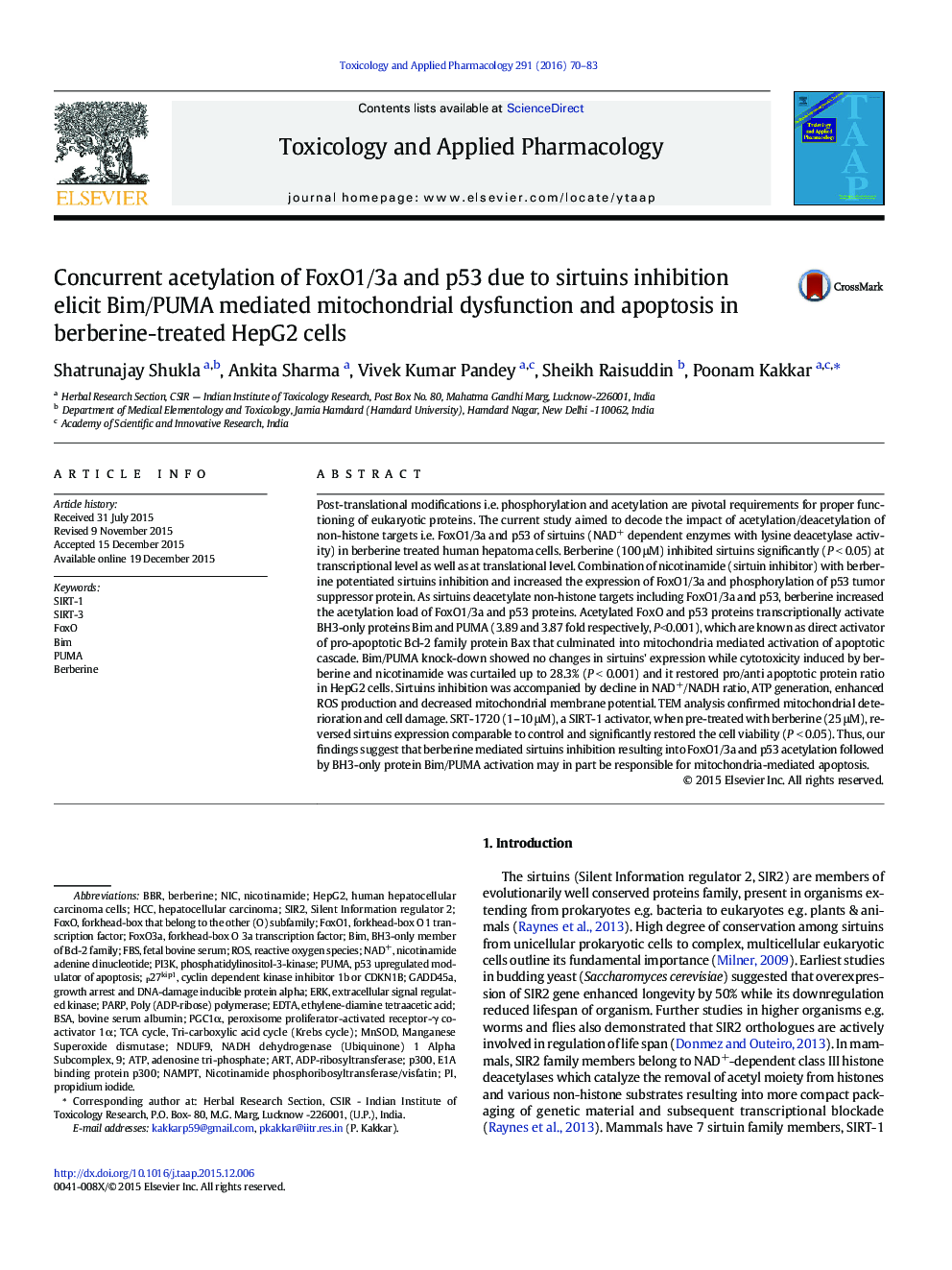| Article ID | Journal | Published Year | Pages | File Type |
|---|---|---|---|---|
| 2568204 | Toxicology and Applied Pharmacology | 2016 | 14 Pages |
•Berberine inhibits sirtuins at transcriptional as well as at translational level.•Sirtuins inhibition leads to acetylation of non-histone proteins, FoxO1/3a and p53.•Acetylated FoxO and p53 transcriptionally upregulate BH3-only proteins Bim and PUMA respectively.•BH3-only proteins trigger mitochondrial dysfunction culminating into apoptosis.•SRT-1720 (SIRT-1 activator) partially restores Bax/Bcl-2 ratio and reduces berberine induced cytotoxicity in HepG2 cells.
Post-translational modifications i.e. phosphorylation and acetylation are pivotal requirements for proper functioning of eukaryotic proteins. The current study aimed to decode the impact of acetylation/deacetylation of non-histone targets i.e. FoxO1/3a and p53 of sirtuins (NAD+ dependent enzymes with lysine deacetylase activity) in berberine treated human hepatoma cells. Berberine (100 μM) inhibited sirtuins significantly (P < 0.05) at transcriptional level as well as at translational level. Combination of nicotinamide (sirtuin inhibitor) with berberine potentiated sirtuins inhibition and increased the expression of FoxO1/3a and phosphorylation of p53 tumor suppressor protein. As sirtuins deacetylate non-histone targets including FoxO1/3a and p53, berberine increased the acetylation load of FoxO1/3a and p53 proteins. Acetylated FoxO and p53 proteins transcriptionally activate BH3-only proteins Bim and PUMA (3.89 and 3.87 fold respectively, P<0.001), which are known as direct activator of pro-apoptotic Bcl-2 family protein Bax that culminated into mitochondria mediated activation of apoptotic cascade. Bim/PUMA knock-down showed no changes in sirtuins' expression while cytotoxicity induced by berberine and nicotinamide was curtailed up to 28.3% (P < 0.001) and it restored pro/anti apoptotic protein ratio in HepG2 cells. Sirtuins inhibition was accompanied by decline in NAD+/NADH ratio, ATP generation, enhanced ROS production and decreased mitochondrial membrane potential. TEM analysis confirmed mitochondrial deterioration and cell damage. SRT-1720 (1–10 μM), a SIRT-1 activator, when pre-treated with berberine (25 μM), reversed sirtuins expression comparable to control and significantly restored the cell viability (P < 0.05). Thus, our findings suggest that berberine mediated sirtuins inhibition resulting into FoxO1/3a and p53 acetylation followed by BH3-only protein Bim/PUMA activation may in part be responsible for mitochondria-mediated apoptosis.
Graphical abstractFigure optionsDownload full-size imageDownload high-quality image (249 K)Download as PowerPoint slide
